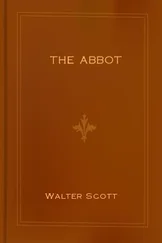Walter Scott - The Betrothed
Здесь есть возможность читать онлайн «Walter Scott - The Betrothed» весь текст электронной книги совершенно бесплатно (целиком полную версию без сокращений). В некоторых случаях можно слушать аудио, скачать через торрент в формате fb2 и присутствует краткое содержание. Год выпуска: 2004, Жанр: Старинная литература, на английском языке. Описание произведения, (предисловие) а так же отзывы посетителей доступны на портале библиотеки ЛибКат.
- Название:The Betrothed
- Автор:
- Жанр:
- Год:2004
- ISBN:нет данных
- Рейтинг книги:3 / 5. Голосов: 1
-
Избранное:Добавить в избранное
- Отзывы:
-
Ваша оценка:
- 60
- 1
- 2
- 3
- 4
- 5
The Betrothed: краткое содержание, описание и аннотация
Предлагаем к чтению аннотацию, описание, краткое содержание или предисловие (зависит от того, что написал сам автор книги «The Betrothed»). Если вы не нашли необходимую информацию о книге — напишите в комментариях, мы постараемся отыскать её.
The Betrothed — читать онлайн бесплатно полную книгу (весь текст) целиком
Ниже представлен текст книги, разбитый по страницам. Система сохранения места последней прочитанной страницы, позволяет с удобством читать онлайн бесплатно книгу «The Betrothed», без необходимости каждый раз заново искать на чём Вы остановились. Поставьте закладку, и сможете в любой момент перейти на страницу, на которой закончили чтение.
Интервал:
Закладка:
Next morning, at an unusually early hour, the chains and bolts of the cell were heard to clash and groan, and Damian was startled from a broken sleep, which he had not enjoyed for above two hours. His eyes were bent on the slowly opening door, as if he had expected the headsman and his assistants; but the jailer ushered in a stout man in a pilgrim's habit. "Is it a priest whom you bring me, warden?" said the unhappy prisoner.
"He can best answer the question himself," said the surly official, and presently withdrew.
The pilgrim remained standing on the floor, with his back to the small window, or rather loophole, by which the cell was imperfectly lighted, and gazed intently upon. Damian, who was seated oil the side of his bed; his pale cheek and dishevelled hair bearing a melancholy correspondence to his heavy irons. He returned the pilgrim's gaze, but the imperfect light only showed him that his visiter was a stout old man, who wore the scallop- shell on his bonnet, as a token that he had passed the sea, and carried a palm branch in his hand, to show he had visited the Holy Land.
"Benedictine, reverend father," said the unhappy young man; "are you a priest come to unburden my conscience?"
"I am not a priest," replied the Palmer, "but one who brings you news of discomfort."
"You bring them to one to whom comfort has been long a stranger, and to a place which perchance never knew it," replied Damian.
"I may be the bolder in my communication," said the Palmer; "those in sorrow will better hear ill news than those whom they surprise in the possession of content and happiness."
"Yet even the situation of the wretched," said Damian, "can be rendered more wretched by suspense. I pray you, reverend sir, to speak the worst at once—if you come to announce the doom of this poor frame, may God be gracious to the spirit which must be violently dismissed from it!"
"I have no such charge," said the Palmer. "I come from the Holy Laud, and have the more grief in finding you thus, because my message to you was one addressed to a free man, and a wealthy one."
"For my freedom," said Damian, "let these fetters speak, and this apartment for my wealth.—But speak out thy news—should my uncle —for I fear thy tale regards him—want either my arm or my fortune, this dungeon and my degradation have farther pangs than I had yet supposed, as they render me unable to aid him."
"Your uncle, young man," said the Palmer, "is prisoner, I should rather say slave, to the great Soldan, taken in a battle in which he did his duty, though unable to avert the defeat of the Christians, with which it was concluded. He was made prisoner while covering the retreat, but not until he had slain with his own hand, for his misfortune as it has proved, Hassan Ali, a favourite of the Soldan. The cruel pagan has caused the worthy knight to be loaded with irons heavier than those you wear, and the dungeon to which he is confined would make this seem a palace. The infidel's first resolution was to put the valiant Constable to the most dreadful death which his tormentors could devise. But fame told him that Hugo de Lacy was a man of great power and wealth; and he has demanded a ransom of ten thousand bezants of gold. Your uncle replied that the payment would totally impoverish him, and oblige him to dispose of his whole estates; even then he pleaded, time must be allowed him to convert them into money. The Soldan replied, that it imported little to him whether a hound like the Constable were fat or lean, and that he therefore insisted upon the full amount of the ransom. But he so far relaxed as to make it payable in three portions, on condition that, along with the first portion of the price, the nearest of kin and heir of De Lacy must be placed in his hands as a hostage for what remained due. On these conditions he consented your uncle should be put at liberty so soon as you arrive in Palestine with the gold."
"Now may I indeed call myself unhappy," said Damian, "that I cannot show my love and duty to my noble uncle, who hath ever been a father to me in my orphan state."
"It will be a heavy disappointment, doubtless, to the Constable," said the Palmer, "because he was eager to return to this happy country, to fulfil a contract of marriage which he had formed with a lady of great beauty and fortune."
Damian shrunk together in such sort that his fetters clashed, but he made no answer.
"Were he not your uncle," continued the Pilgrim, "and well known as a wise man, I should think he is not quite prudent in this matter. Whatever he was before he left England, two summers spent in the wars of Palestine, and another amid the tortures and restraints of a heathen prison, have made him a sorry bridegroom."
"Peace, pilgrim," said De Lacy, with a commanding tone. "It is not thy part to censure such a noble knight as my uncle, nor is it meet that I should listen to your strictures."
"I crave your pardon, young man," said the Palmer. "I spoke not without some view to your interest, which, methinks, does not so well consort with thine uncle having an heir of his body."
"Peace, base man!" said Damian. "By Heaven, I think worse of my cell than I did before, since its doors opened to such a counsellor, and of my chains, since they restrain me from chastising him.—Depart, I pray thee."
"Not till I have your answer for your uncle," answered the Palmer. "My age scorns the anger of thy youth, as the rock despises the foam of the rivulet dashed against it."
"Then, say to my uncle," answered Damian, "I am a prisoner, or I would have come to him—I am a confiscated beggar, or I would have sent him my all."
"Such virtuous purposes are easily and boldly announced," said the Palmer, "when he who speaks them knows that he cannot be called upon, to make good the boast of his tongue. But could I tell thee of thy restoration to freedom and wealth, I trow thou wouldst consider twice ere thy act confirmed the sacrifice thou hast in thy present state promised so glibly."
"Leave me, I prithee, old man," said Damian; "thy thought cannot comprehend the tenor of mine—go, and add not to my distress insults which I have not the means to avenge."
"But what if I had it in my power to place thee in the situation of a free and wealthy man, would it please thee then to be reminded of thy present boast? for if not, thou may'st rely on my discretion never to mention the difference of sentiment between Damian bound and Damian at liberty."
"How meanest thou?-or hast thou any meaning, save to torment me?" said the youth.
"Not so," replied the old Palmer, plucking from his bosom, a parchment scroll to which a heavy seal was attached.—"Know that thy cousin Randal hath been strangely slain, and his treacheries towards the Constable and thee as strangely discovered. The King, in requital of thy sufferings, hath sent thee this full pardon, and endowed thee with a third part of those ample estates, which, by his death, revert to the crown."
"And hath the King also restored my freedom and my right of blood?" exclaimed Damian.
"From this moment, forthwith," said the Palmer—"look upon the parchment—behold the royal hand and seal."
"I must have better proof.—Here," he exclaimed, loudly clashing his irons at the same time, "Here, thou Dogget-warder, son of a Saxon wolfhound!"
The Palmer, striking on the door, seconded the previous exertions for summoning the jailer, who entered accordingly.
"Warder," said Damian de Lacy, in a stern tone, "am I yet thy prisoner, or no?"
The sullen jailer consulted the Palmer by a look, and then answered to Damian that he was a free man.
"Then, death of thy heart, slave," said Damian, impatiently, "why hang these fetters on the free limbs of a Norman noble? each moment they con-fine him are worth a lifetime of bondage to such a serf as thou!"
Читать дальшеИнтервал:
Закладка:
Похожие книги на «The Betrothed»
Представляем Вашему вниманию похожие книги на «The Betrothed» списком для выбора. Мы отобрали схожую по названию и смыслу литературу в надежде предоставить читателям больше вариантов отыскать новые, интересные, ещё непрочитанные произведения.
Обсуждение, отзывы о книге «The Betrothed» и просто собственные мнения читателей. Оставьте ваши комментарии, напишите, что Вы думаете о произведении, его смысле или главных героях. Укажите что конкретно понравилось, а что нет, и почему Вы так считаете.





